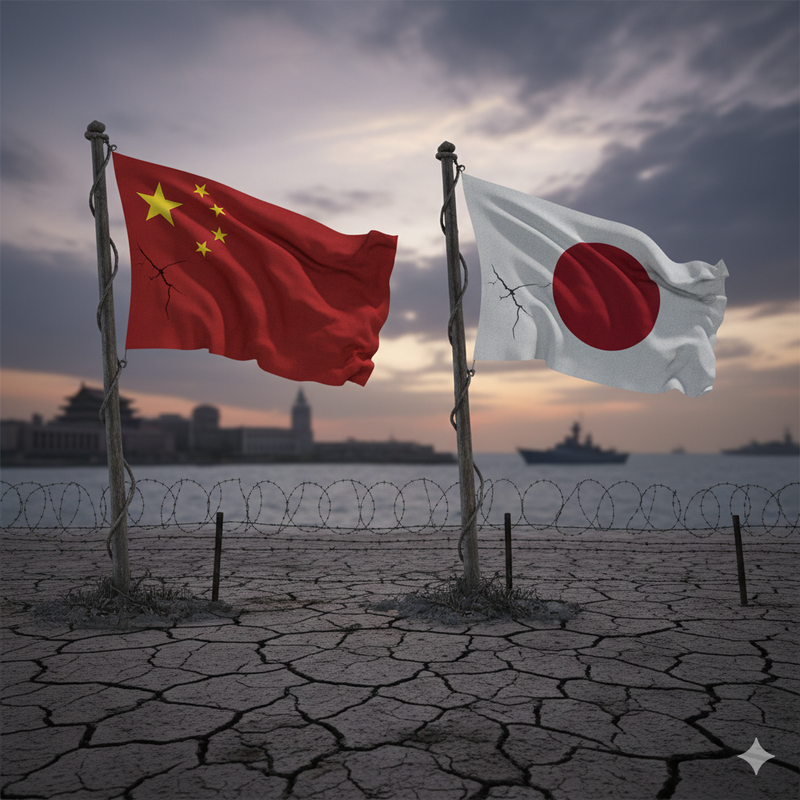
Lifestyle
Beijing Issues Stark Travel Warning: Rising Tensions Over Taiwan Spark China-Japan Diplomatic Crisis
The geopolitical landscape of East Asia experienced a seismic shift this week as China's Ministry of Foreign Affairs issued a rare and stringent travel advisory, cautioning Chinese nationals against traveling to Japan. This dramatic move comes amid escalating tensions over Taiwan, signaling what analysts describe as one of the most serious diplomatic rifts between the two Asian powerhouses in recent years.
Understanding the Travel Advisory
China's State Council and Ministry of Culture and Tourism jointly released the advisory, citing "safety concerns" and "potential risks" for Chinese citizens visiting Japan. While travel advisories are not uncommon in international relations, the timing and language of this particular warning have sent shockwaves through diplomatic circles and the tourism industry alike.
The advisory stops short of an outright travel ban but strongly discourages non-essential travel to Japan. Chinese authorities have urged citizens already in Japan to "remain vigilant" and register with local consular services. This marks a significant departure from the previously warming tourism relations between the two nations, which had seen Chinese visitors becoming one of Japan's largest tourist demographics in recent years.
The Taiwan Factor: Root of the Dispute
At the heart of this diplomatic standoff lies the perpetually contentious issue of Taiwan. Recent developments have inflamed longstanding tensions, with Japan taking what Beijing perceives as increasingly supportive positions toward Taiwan's autonomy. Japanese lawmakers' visits to Taipei, combined with statements from Tokyo officials regarding regional security that Beijing interprets as interference in its internal affairs, have created a perfect storm of diplomatic friction.
China maintains its long-held position that Taiwan is an inalienable part of Chinese territory, while Japan has historically adhered to a policy of strategic ambiguity. However, recent shifts in Tokyo's rhetoric, particularly concerning the defense of democratic values in the region and freedom of navigation in the Taiwan Strait, have been interpreted by Beijing as crossing red lines.
Economic Implications and Tourism Industry Impact
The ramifications of this travel advisory extend far beyond diplomatic posturing. Japan's tourism industry, still recovering from the pandemic-era downturn, faces significant challenges. Chinese tourists have historically been among the highest-spending visitors to Japan, contributing billions to the economy through shopping, dining, and accommodation expenditures.
Japanese tourism operators, particularly those in popular destinations like Tokyo, Osaka, and Kyoto, are bracing for substantial revenue losses. Retail sectors specializing in luxury goods and electronics, which have traditionally catered heavily to Chinese visitors, are already reporting concerns about declining sales projections.
Regional Security Concerns
Defense analysts point to this development as symptomatic of broader regional security dynamics. The United States, Japan's primary security ally, maintains a complex relationship with both China and Taiwan. Washington's commitment to Taiwan's defense capabilities, combined with Tokyo's growing security cooperation with the U.S., has created a triangular tension that shows no signs of abating.
The travel advisory also comes against the backdrop of increased military activities in the region, including naval exercises in the East China Sea and aerial incursions near Taiwan's air defense identification zone. These military maneuvers, combined with diplomatic pressure tactics like travel advisories, represent what experts call a "comprehensive approach" to geopolitical leverage.
International Response and Future Outlook
The international community has watched these developments with growing concern. Southeast Asian nations, many of which maintain careful diplomatic balancing acts between Beijing and Tokyo, have largely remained silent. However, Western allies have expressed support for freedom of navigation and the rules-based international order, statements that Beijing views as implicit backing for Japan's position.
Looking ahead, the trajectory of China-Japan relations remains uncertain. Historical grievances, territorial disputes over the Senkaku/Diaoyu Islands, and now the Taiwan issue create multiple flashpoints. The travel advisory could be the first of several economic and diplomatic pressure tactics that Beijing deploys to signal its displeasure with Tokyo's Taiwan policy.
Implications for Global Travelers
For international travelers and businesses operating in East Asia, this development serves as a reminder of how quickly geopolitical tensions can impact practical considerations like tourism and business travel. Airlines, hotels, and tour operators throughout the region are reassessing their strategies and preparing for various scenarios.
Travel industry experts recommend that all visitors to East Asia, regardless of nationality, stay informed about diplomatic developments and maintain flexible travel plans. The situation underscores the interconnected nature of modern geopolitics, where diplomatic disputes can rapidly translate into tangible impacts on people's daily lives and economic activities.
Conclusion
China's travel advisory against Japan represents more than a simple cautionary measure—it's a calculated diplomatic signal in an increasingly complex regional power dynamic. As Taiwan continues to be a central point of contention, the international community watches closely to see whether dialogue and diplomacy can prevail over escalation. For now, the advisory stands as a stark reminder that in East Asian geopolitics, the personal and political are never far apart.
The coming weeks will be crucial in determining whether this represents a temporary cooling of relations or the beginning of a more prolonged period of tension between Asia's two largest economies.
Comments (0)
Please log in to comment
No comments yet. Be the first!